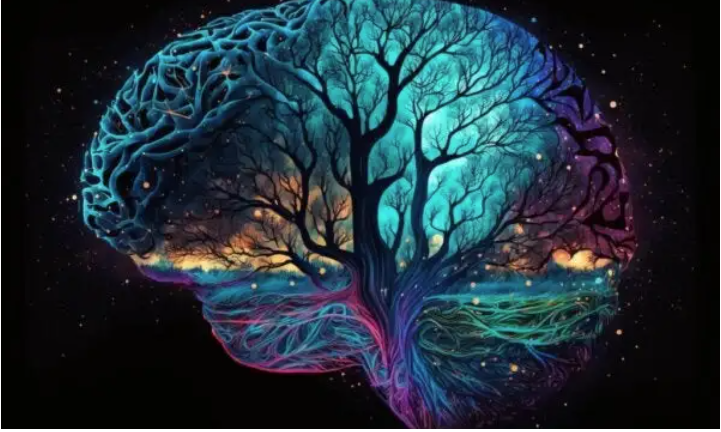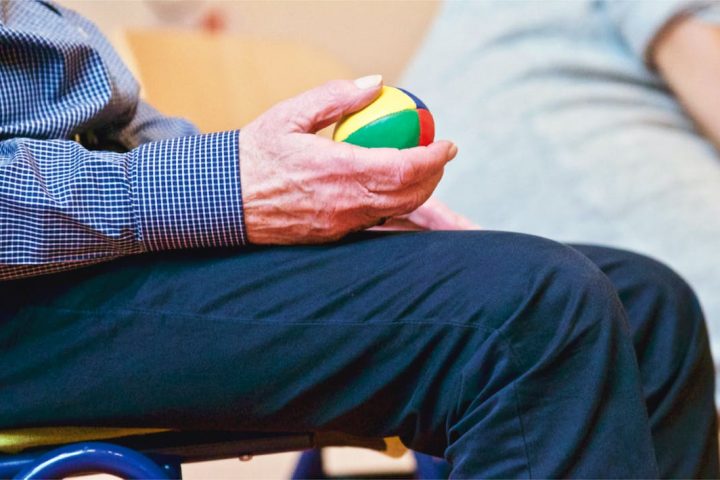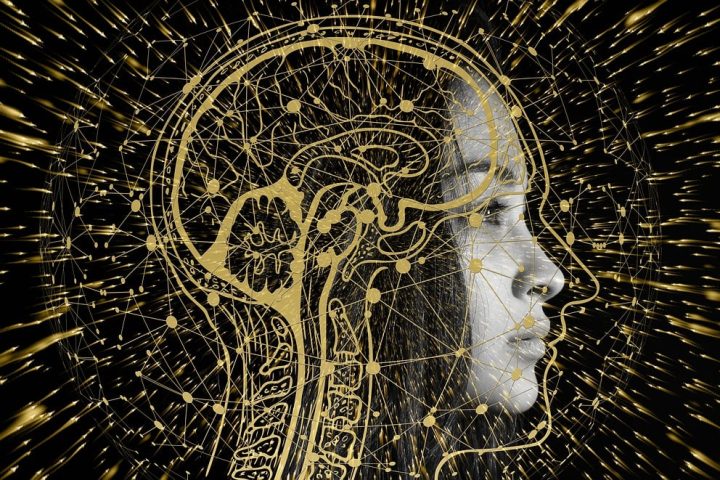One of the greatest mysteries that philosophy, psychology and neuroscience are trying to solve is how the human mind works. The philosopher John Locke once said that the mind of an infant is like a blank page. Sigmund Freud likened this entity to an invisible mechanism of hydraulic and electromagnetic systems.
Today cognitive psychologists like Steven Pinker tell us that the mind is a neural computer. Grasping this idea allows us to separate it from the brain and see it as an entity that enables the flow of information and therefore defines you. We can call it “energy” that we take from the brain itself, the body and the environment to draw conclusions and survive.
It’s a topic that is as interesting as it is complex, and well worth investigating. In this article you will find all the information you need on the subject.
“The mind is like an iceberg. It floats with one-seventh of its mass above the water.”
– Sigmund Freud –
Mind and brain are not the same thing
The mind is the entity that drives all our psychological processes. Complex and wonderful motivational, emotional, behavioral and perceptual systems flow through it that are necessary for us to be able to act, learn and understand the things that surround us, to name a few.
Now, it is important to clarify that mind and brain are not the same entity. But it is not possible for the former to exist without the latter.
The mind emerges as soon as the brain reaches sufficient biological sophistication. As a study published in the journal Perspectives on Psychological Science explains, the future of psychology needs this vision, in which the mind and brain are understood as linked, but the mind performs its own functions. What are the subtle differences?
- The mind is an abstract entity that includes consciousness and an infinite number of cognitive processes.
- The brain is its biological support, the area of the central nervous system that is the result of our evolution.
- The mind is not in a physical and tangible place, it manifests through neurological networks and evolves through our experience and interrelationship with the context that surrounds us.
- The brain can develop disease and be subjected to trauma; disorders of the mind cannot be observed. This explains why we label them as “mental disorders” and psychology is the field that addresses these conditions.
- The mind changes the brain. What we think and feel can change the anatomy and connectivity of the brain. Psychotherapy itself is an example of this. As an article in the Indian Journal of Psychiatry notes, therapeutic processes have the ability to change our neurological universe, and this is common when dealing with traumas.
Your conscious mind and your unconscious mind: Two modes of operation
If you have ever wondered how the human mind works, you will be interested to know that it does so in basically two ways: Consciously and unconsciously. And the most fascinating is the unconscious mind, because most of the things you do every day are done automatically by it.
The Journal of the Association for Psychological Science points out that this may come as a bit of a surprise, as we still carry some preconceptions about this psychological construct. Thinking of the term “unconscious” almost immediately brings to mind the theories of Sigmund Freud.
The fact is that this mental layer brings together all the automatic tasks that we often perform, which do not require active and conscious information processing. Moreover, the Neuroscience of Consciousness points out that it is through this mechanism that we incorporate even very simple learning. Here are the distinctions between your conscious and unconscious mind:
Functions of the conscious mind:
- Self-awareness
- Working memory
- Impulse control
- Decision making
- Emotional self-control
- Imagination and creativity
- Problem solving
- Logical reasoning and reflection
Intuition is a process that our unconscious mind performs by storing all our experiences. Thanks to it, we make quick decisions at certain times.
Functions of the unconscious mind
- Intuition
- Memory storage.
- Some learning based on the association of stimuli.
- Automatic processing of received stimuli as well as information such as face and pattern recognition.
- Habit processing and motor skills. An example of this is learning to write or riding a bicycle. With enough practice, these activities are performed automatically and unconsciously.
Theories about how the human mind works
Science still does not know exactly how the human mind works. We continue to discuss this issue from a wide variety of approaches and perspectives, and experts cannot reach a clear and definitive consensus. We can remember, for example, what happened with Stephen Pinker’s book How the Mind Works.
The theses of this experimental psychologist, a cognitive scientist, have excited many of his professional colleagues. There is no consensus on what the mind is or how it works. Therefore, to get a more or less general idea of the subject, we will take a look at the different theories surrounding it.
Computational theory
The computational model of the mind started from the theory of Noam Chomsky and his generative grammar. According to this famous linguist, we all have innate rules that explain the ease with which we learn language from a young age. These rules start from our natural and automatic ability to recognize symbols.
In this dimension, the mind is not seen as a computer, but as a system that manages complex symbols. It is actually comparable to the machine that Alan Turing was building at the time.
- Computation is a set of rules that express and process every stimulus we receive, giving it meaning.
- According to this model, the way the human mind works is like a device that constantly creates symbols. Through them we understand the world and act in it.
Information processing theory and how the mind works
Information processing theory describes the human mind as a computer in which all information is recorded, coded and stored. Books such as Peter H. Lindsay and Donald A. Norman’s Human Information Processing (1972) laid the foundations of cognitive psychology by viewing humans as beings fundamentally limited to processing information.
- According to this theory, the mind is the software and the brain is the hardware.
- According to this perspective, the most decisive phase takes place between the moment we receive a stimulus and the moment we react. The way we elaborate and handle each piece of information, emotion or experience is decisive.
Modular theory of mind
Another hypothesis about how the human mind works is the one put forward by Steven Pinker in his book, which has a long tradition in psychology. According to the modular theory, the mind is organized in modules in different specialized structures.
This model draws on evolutionary psychology and says that the mind, like our body, is the result of evolution. Over time, we integrate new collections of mental domains and abilities to better adapt to the environment.
What we think determines what happens to us. So if we want to change our lives we need to expand our minds.
-Wayne Dyer-
We know more about how the mind works, but there is more to discover
Scientific research has shed light on many mysteries about the brain and mind, but what remains is far beyond the answers we have. The mental universe is devoid of matter. It is not a network of neurons inside the cranial cavity. It is a dimension so formless but so powerful that it defines who we are and how we process reality.
It is very likely that in the coming years more data will become clearer and the expert community will achieve greater cohesion and provide us with more precise explanations.





